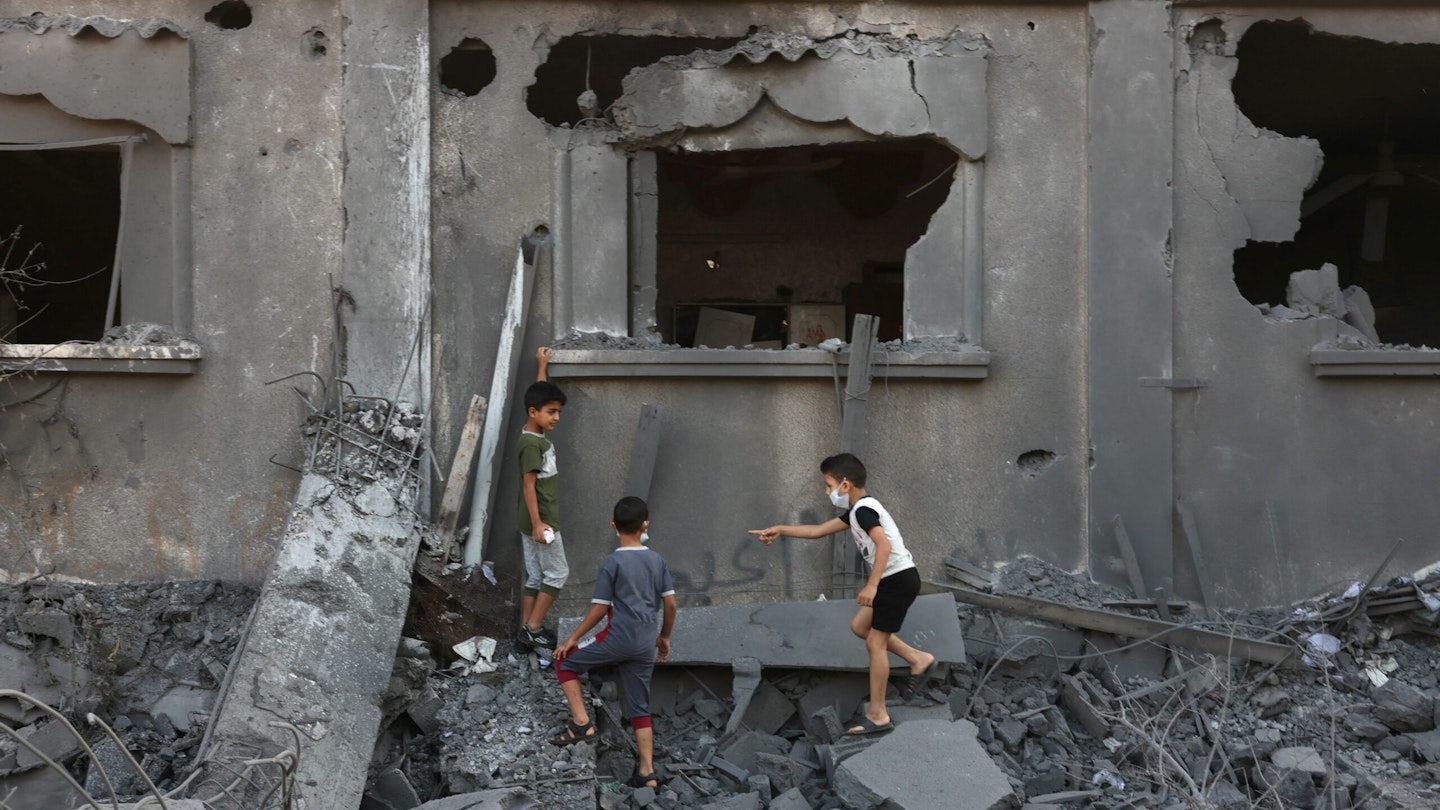The rolling news cycle of the devastation coming out of the Israel-Gaza crisis can feel overwhelming and unrelenting to adults. Least of all when it comes to how - or if - we should approach it with our children.
Last month, the social media platform TikTok announced it was increasing its efforts to stop the tide of misinformation and violent videos circulating, and updated its software to remove graphic videos of the conflict, while some schools urged parents to remove social media from their children’s phone altogether.
However, while older children and teenagers may see the horrors unfolding on their phones, even younger children may hear news on the TV while they’re eating dinner, catch a glimpse of a newspaper front page, or hear about it on the radio on their drive to school, says psychologist and author Linda Blair.
‘But before any conversation takes place, however, the first thing to consider is your child’s age,’ she says. ‘Children under the age of seven don’t need to know the exact details of what’s happening because it’s hard for them to understand. All they really want is to feel safe, so parents can reassure them that they’ll be OK.'
Helen O’Connor, the Head of Communication Education at the Red Cross and a former secondary school teacher, suggests one way of reassuring young children is by showing them a map of where the conflict is taking place compared to where they are. ‘Very young children may worry the conflict is closer than it is, so a map may help calm their fears.'
It's also important for parents to create a safe space for them to ask questions, she says. ‘Young children are like sponges, taking everything in. So, the key message we want to get across is to encourage confidence in them to discuss their fears and feelings with the adults around them. Don’t be afraid of the news and hurry to switch it off whenever news of the conflict comes on.' But do limit screen time and avoid doomscrolling online, she says, because children pick up on our fears.
O’Connor says it’s also important to consider your own views before discussing things with your children, and to read up on the facts if you’re unsure of them. ‘And if you don’t know the answers to any of their questions, it’s OK to simply tell them that. But to reassure them you will then go away and try to find out more, if you wish to discuss things further with them.’
Blair agrees, and says that conversations around conflict can more often than not lead to more questions rather than answers. ‘It’s OK for your children to keep asking questions around the different issues, because this teaches them to bear uncertainty as they grow older. But it’s also important to give them hope, and point their attention to all the people that are helping, from the aid workers to the doctors working in the hospitals.'
Lastly, O’Connor points out that the Red Cross also has a teaching resource called How to talk to children and young people about conflict resource that is suitable for children aged 5 and over and is a good starting point for parents (and teachers). As well as some kindness resources for those aged 5 to 14, including their Kindness activity pack, which helps children learn about the power of kindness and how to support their own wellbeing.
